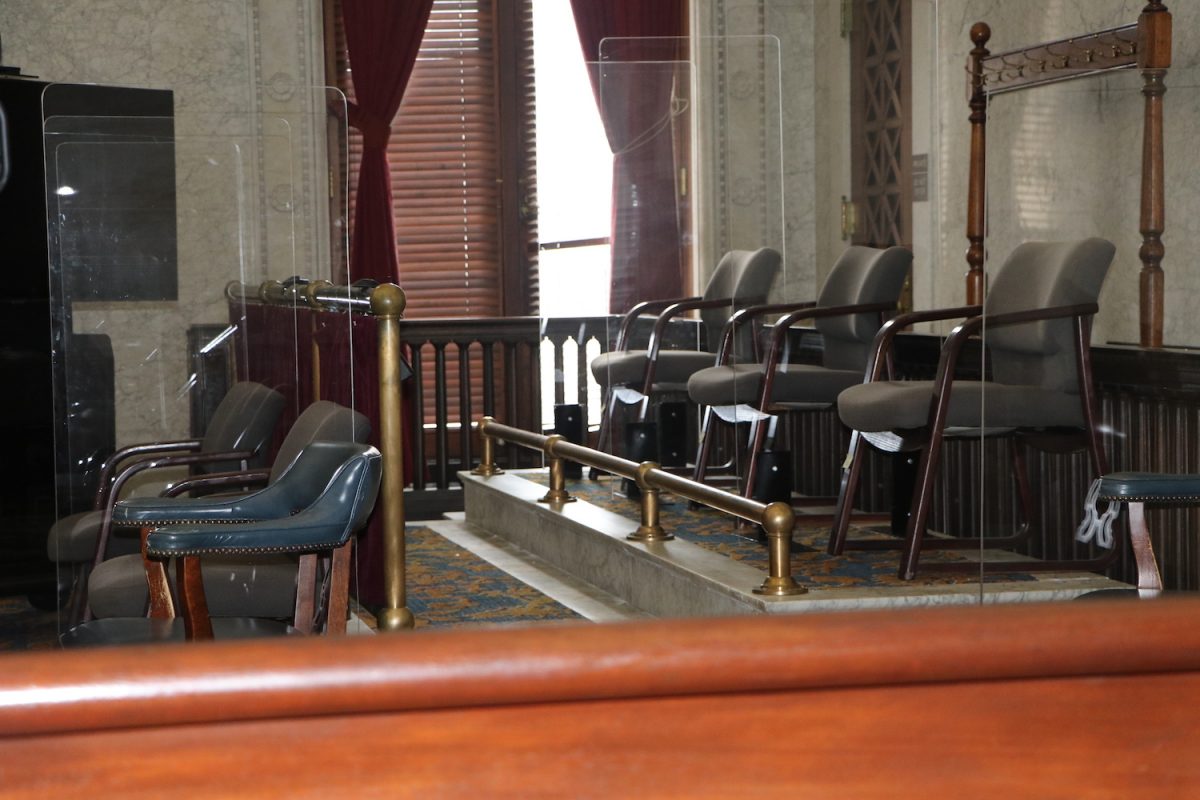
Thank you for reading Baltimore Witness.
Consider making a donation to help us continue our mission.
By
Andrew Michaels
- December 7, 2022
Court
|
Daily Stories
|
Homicides
|
Shooting
|
Suspects
|
Victims
|
A jury was able to reach a verdict for three out of the four co-defendants charged with the brutal murder of 21-year-old Donnell Brockington three years ago on Nov. 13, 2019.
William Thornton was found guilty of the lesser charge of second-degree murder, while two of his co-defendants, Shamar Jerry and Anthony Clark, were found not guilty of first-degree murder but guilty of several weapons charges.
A mistrial was declared for James Dunbar in connection to the second-degree murder charge; however, he was found guilty of weapons charges.
Baltimore City Circuit Court Judge Dana Middleton presided over the trial.
The weeks-long murder trial concluded on Dec. 1 as the prosecution and the defendants’ respective attorneys used closing arguments to convince the jury of those responsible for the fatal shooting.
Brockington was gunned down on the 2600 block of McElderry Street, suffering at least ten gunshot wounds, some of which the prosecution said were made from close range.
“He was facing his murderers” when the shooting occurred, one of the prosecutors told the jury after a week’s worth of testimony from Baltimore Police officers, crime lab technicians, and forensic scientists. Now, she said, the jurors must begin their deliberations, focusing on three aspects of the fatal shooting: the victim’s body, the recovered video surveillance footage, and the crime scene.
The prosecutor reminded jurors that Baltimore Police found Brockington on his back, bleeding and unresponsive, as she switched between photographs of the victim’s body that showed his various gunshot wounds.
“What happened to Donnell Brockington, whose name stopped getting mentioned on day two of the trial?” the prosecutor asked the jury. According to the state’s attorney’s case, the four co-defendants were behind Brockington’s execution-style murder, which was captured on surveillance footage and played before the jurors throughout the trial.
On the first day of closing arguments, the prosecution, once again, played snippets of the footage that showed six people walking down North Lakewood Avenue and onto McElderry Street and approaching the victim. All of the individuals then stopped, and that’s when muzzle flashes burst onto the screen—five flashes over four seconds and two more five seconds later, she said.
Soon after, police saw a gold Infiniti SUV nearby with six occupants who led them on a high-speed chase that ended when the vehicle crashed into a tree.
Several shell casings and bullet fragments were recovered from the scene of the shooting, the prosecutor reminded the jury, and were later matched with firearms that were found inside the vehicle.
During their closing arguments, each defense attorney highlighted similar aspects of the case, specifically the Baltimore Police Department’s poor investigation. Donald Wright, who represented Clark, asked the jury not to group all of the defendants together and “paint everyone with the same brush.”
“Not a single witness places Anthony Clark at the scene of the shooting,” Wright said. Additionally, there was no evidence that his client knew Brockington.
“The Baltimore Police Department’s investigation revolved around rousing everyone up and convicting them all,” he said.
Dunbar’s attorney, Roland Brown, echoed similar sentiments, saying that there was no evidence that his client participated in anything.
“We have an innocent man being accused of a crime he didn’t commit,” Brown said. “We know a man was shot. We know a man was killed. We just don’t know who did it.”
As the third attorney to provide closing arguments, Brandon Patterson, Shamar’s defense counsel, said his client, too, did not know the victim. Patterson also questioned a Baltimore Police officer’s description of six “wide-eyed” people inside the Infiniti, given how dark it was outside at the time and that the vehicle had a 20-percent tinted windshield.
“If someone is killed and you don’t know why, it kind of hampered your investigation,” Patterson said.
Thornton’s defense attorney, John Cox, concluded that the prosecution and the police department were simply “trying to through everything at the wall to see what sticks.” This included charges against his client that didn’t apply to him, including having a handgun in a vehicle and having an assault pistol.
Thornton’s sentencing is scheduled for March 13, 2023; Shamar’s sentencing is scheduled for May 9, 2023; Clark’s sentencing is scheduled for June 8, 2023.
Dunbar’s next court appearance is scheduled for May 9, 2023.
Read more on this trial here.
